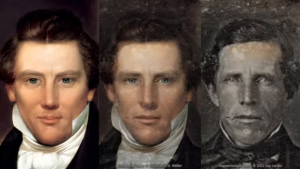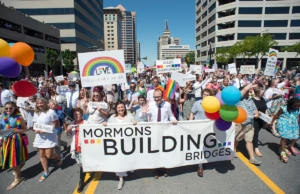The Rising Tide: The Growing Influence of the Christian Right in Texas

Introduction
The Christian Right has emerged as a potent force in Texas politics, a growing movement characterized by its confidence and assertiveness in recent years. This rise is not coincidental; it reflects a broader socio-political landscape shaped by various factors, including significant court rulings and electoral victories that align closely with their values. The growing influence of this conservative faction has begun to reshape the state’s policies, social discourse, and even cultural identity.
One key driver behind the ascent of the Christian Right in Texas is the alignment of state courts with conservative interpretations of the law, particularly concerning issues such as religious freedom and family values. Recent judicial decisions have often been in favor of the Christian Right’s agenda, emboldening its adherents and legitimizing their concerns in public discourse. Consequently, this movement has gained traction among certain voter demographics who see their beliefs represented and protected in the political arena.
Moreover, electoral outcomes have further catalyzed the Christian Right’s influence. A series of elections yielding significant victories for conservative candidates in Texas has reinforced the belief among supporters that their values resonate with a larger constituency. This electoral success has manifested in legislative measures that reflect a commitment to principles traditionally held by the Christian Right, such as opposition to abortion and the promotion of traditional marriage. The increased visibility and assertiveness of this faction have prompted a re-examination of Texas’s historical moderation, highlighting a shift toward a more polarized political environment.
The implications of this growing influence are profound, as debates intensify around pivotal social issues. As the Christian Right continues to assert its agenda through grassroots mobilization, legislative advocacy, and strategic partnerships, understanding its emergence is crucial for comprehending the future political landscape of Texas.
Historical Context of the Christian Right in Texas
The Christian Right in Texas has its roots in the broader national conservative movement of the late 20th century, emerging as a response to social and cultural changes in America. In the 1970s, evangelical Christians began to mobilize politically, seeking to assert their influence on a range of issues, from education to moral legislation. This period marked the establishment of various organizations that aimed to promote Christian values within the political framework of the state, significantly altering Texas’s political landscape.
A pivotal moment came in 1980, when the religious right gained prominence during Ronald Reagan’s presidential campaign. Reagan appealed to Christian voters by emphasizing traditional values, which resonated deeply in a state where evangelical Christianity held a strong cultural presence. The subsequent election resulted in a growing fusion between faith and politics, paving the way for the Christian Right to gain traction in Texas’s Republican Party. The establishment of the Texas Alliance for Life and the Texas Republican Party’s platform became critical moments for the movement, reinforcing their agenda on pro-life issues and family values.
Key Court Rulings Empowering the Christian Right
In recent years, a series of court rulings have played a pivotal role in fortifying the initiatives and policies advocated by the Christian Right in Texas. These legal decisions have been instrumental in redefining the boundaries of religious freedom, education, and various social issues, providing a foundation for the movement’s influence within the state. Central to this transformation were cases that tested the limits of the First Amendment, particularly the intersection of religion and government policies.
One landmark case is the 2011 ruling in “Benedict v. Texas State Board of Education,” which addressed the inclusion of religious perspectives in public school curricula. The court held that promoting a distinctly Christian viewpoint does not necessarily violate the Establishment Clause, thus allowing for certain religious narratives in educational settings. This decision prompted a significant shift, as it emboldened school boards to integrate religious content into their programs, aligning more closely with the doctrines advocated by the Christian Right.
Moreover, the 2018 Supreme Court case “Masterpiece Cakeshop v. Colorado Civil Rights Commission” underscored the legal protections available for businesses asserting religious beliefs in their operations. The ruling affirmed that the government must respect an individual’s right to free exercise of religion, particularly in cases where business owners are compelled to act against their faith. Such rulings have provided a strong legal framework for the Christian Right, encouraging similar legal challenges across the state, from wedding service controversies to healthcare provisions linked to religious beliefs.
Additionally, lower court decisions, like “Texas Freedom Network v. Texas Education Agency,” have played a part in sustaining the momentum of the Christian Right by reinforcing the accessibility of religious arguments in public policy. These developments not only highlight the changing landscape of legal interpretations but also serve as a catalyst for the ongoing efforts of the Christian Right to reshape social norms in Texas.
Political Landscape: Recent Election Victories
In recent years, the political landscape of Texas has experienced significant shifts, primarily due to the ascendancy of the Christian Right. Recent election victories have markedly bolstered their influence within the state government, impacting legislative priorities and public policy decisions. A noteworthy example occurred during the midterm elections, where candidates backed by Christian conservative groups successfully secured numerous seats across various levels of government. These victories were underscored by targeted campaigning efforts that emphasized values central to the Christian Right, such as family integrity, religious liberty, and traditional moral standards.
The strategy employed by these candidates involved mobilizing grassroots support, especially within church communities, and leveraging social media platforms to reach younger voters. Campaigns often highlighted contentious issues such as abortion, gun rights, and education policies that resonate with their base. In some districts, candidates utilized door-to-door outreach and community events to foster relationships and encourage voter turnout, showcasing their commitment to the beliefs upheld by the Christian Right.
The implications of these election successes extend beyond mere representation; they manifest in legislation that reflects conservative ideologies. For instance, the recently passed laws regarding education, healthcare, and social services align closely with the priorities championed by the Christian Right. As a result, Texas has witnessed a greater push towards policies that limit abortion access and promote parental rights in education. Furthermore, these legislative outcomes signify a broader trend that could reshape the political discourse in Texas for years to come.
As the Christian Right continues to consolidate its power through electoral gains, the effects on Texas’s political environment are profound. The interplay between these recent victories and state policy-making presents crucial considerations for residents and observers alike, as the implications of this growing influence will undoubtedly unfold in various facets of governance.
Grassroots Movements and Community Engagement
The Christian Right in Texas has increasingly gained momentum through grassroots movements and an emphasis on community engagement. These initiatives primarily originate from local churches, which serve as vital hubs for mobilization, communication, and the dissemination of moral values. Churches create a communal space for supporters to congregate, fostering not only spiritual growth but also deepening ties among members who share similar beliefs. This connectivity results in a unified effort to promote the Christian Right agenda, thereby accentuating its influence across the state.
Various organizations rooted in Christian ideologies have emerged, amplifying this grassroots movement. Groups such as the Texas Values and the Texas Alliance for Life play critical roles in advocating for family values and mobilizing supporters for social causes. Their community-focused campaigns include workshops, seminars, and outreach programs that educate the public on pressing issues, aligning them with the Christian Right’s perspectives. These organizations effectively utilize social media, newsletters, and local events to reach a broader audience, thus reinforcing their moral views.
Moreover, rallies and events organized by both churches and community groups provide effective platforms to showcase solidarity and commitment. These gatherings not only attract large numbers of participants but also generate media coverage that amplifies their messages. The ability to gather supporters and articulate shared values in public settings captures the attention of citizens and lawmakers alike, further solidifying their influence within Texas. This multifaceted engagement nurtures a growing network of activists who are committed to advocating for the Christian Right’s beliefs, illustrating how local involvement is instrumental in the broader movement.
The Role of Media in Amplifying Their Message
The influence of the Christian Right in Texas has been significantly augmented by the strategic use of media platforms, particularly social media, which serve as powerful tools for communication and engagement. These platforms enable organizations and individuals within the Christian Right to reach a broader audience, effectively disseminating their messages and ideologies to new constituents. The fostering of an engaged online community is a cornerstone of their communication strategy, allowing for the rapid sharing of information, mobilization of supporters, and reinforcement of shared values.
Moreover, traditional media outlets, including television and radio, play a crucial role in this amplification process. Interviews and discussions featuring prominent figures from the Christian Right provide these viewpoints with a sense of legitimacy and visibility, allowing them to penetrate mainstream discourse. By engaging in debates and participating in television programs, they skillfully present their perspectives on pertinent social issues, often appealing to a sense of morality and community that resonates with many Texans.
Social media, in particular, has transformed how the Christian Right operates. Platforms such as Facebook and Twitter enable organizations to create targeted campaigns that engage local communities directly. These campaigns often utilize visually compelling graphics and emotionally charged messages designed to stimulate discussions and encourage users to share content within their networks. By harnessing the dynamics of online engagement, the Christian Right successfully generates grassroots support and builds momentum for their initiatives and causes.
Furthermore, the digital landscape provides a wealth of data analytics tools that allow these groups to monitor engagement metrics, adjust strategies in real-time, and better understand the concerns of their audience. This adaptability has made their messaging more relevant and finely tuned to the sentiments of wider demographics. All of these elements contribute to a pronounced rise in the reach and influence of the Christian Right in Texas, illustrating the undeniable role that media plays in shaping public perception and community connection.
Challenges and Opposition Faced by the Christian Right
The Christian Right in Texas, while gaining substantial influence in political discourse, faces numerous challenges and opposition from various liberal groups. One of the most prominent challenges arises from the growing secular demographic within the state, which increasingly espouses progressive social values that often contradict the traditional moral viewpoints championed by the Christian Right. This opposition is not merely demographic; it often manifests in organized movements aimed at countering the narratives advanced by this faction.
Liberal groups have mobilized to advocate for social justice, LGBTQ+ rights, and reproductive freedoms, among other issues, positioning themselves as champions of an inclusive society. These organizations, such as the Texas Freedom Network and Equality Texas, actively campaign against legislative measures perceived as discriminatory or regressive. Their efforts include grassroots organizing, lobbying against bills, and leveraging media platforms to raise awareness about the implications of policies supported by the Christian Right.
The political landscape is further complicated by the presence of moderate Republicans and independents who may not align entirely with the ideologies of the Christian Right. This faction often acts as a counterbalance within the Republican Party, challenging more extreme views associated with this movement. The internal dissent resonates with voters who prioritize pragmatic governance over ideological purity.
Additionally, the Christian Right faces increasing scrutiny from academic institutions and think tanks that critique its influence on public policy. Scholars have raised concerns about the potential erosion of secular governance and the implications of intertwining politics with religious doctrine. Such criticisms not only bolster opposition but also catalyze broader conversations about the role of faith in public life within Texas.
Despite the fervent support that the Christian Right garners from its base, these challenges highlight the complexities of the current political environment in Texas. The interactions between various ideological groups continue to shape the public discourse, creating a dynamic and often contentious landscape.
Impact on Legislation and Policy Changes
The influence of the Christian Right in Texas is increasingly evident in various legislative and policy changes that reflect their ideological beliefs. Over the past decade, several key policies have emerged that illustrate this impact, particularly in the areas of education, abortion, and religious freedoms. These changes are significant not only for their immediate effects but also for their long-term implications on Texas’s societal landscape.
In education, the Christian Right has championed initiatives aimed at reshaping school curricula to incorporate conservative perspectives. The push for inclusion of creationism alongside evolution in science classes epitomizes this trend. This ideological shift has sparked debates regarding academic freedom and the separation of church and state, raising concerns among educators and parents about the potential erosion of educational standards.
Additionally, the promotion of school choice and voucher programs has gained momentum, framed as a means to enhance parental control over educational decisions. Proponents argue that these measures enable parents to select schools that align with their values, although critics assert this may divert essential funding from public schools.
Another critical area influenced by the Christian Right is abortion legislation. Texas has enacted a series of stringent abortion laws that align with the Christian Right’s pro-life stance. The passage of the Heartbeat Act, which bans abortions after a fetal heartbeat is detected, represents a significant shift in reproductive rights. Such legislative measures have led to profound consequences for women’s healthcare access and reproductive autonomy, prompting legal challenges and widespread protests.
Moreover, the advocacy for religious freedoms has resulted in policies that permit individuals and organizations to refuse services based on religious beliefs. These laws have raised complex questions surrounding discrimination and equal rights, presenting challenges for businesses and individuals navigating the balance between religious freedom and anti-discrimination protections.
As the Christian Right continues to assert its influence in Texas, the ramifications of these legislative and policy changes warrant careful consideration, particularly regarding their implications for the state’s diverse population.
Future Outlook: The Christian Right’s Path Ahead
The trajectory of the Christian Right in Texas appears poised for significant developments in the coming years. As a powerful political and social force, their influence has grown substantially, shaped by a complex interplay of cultural values, religious beliefs, and political actions. This growth is not without challenges, as shifts in public sentiment and demographic changes may bring new dynamics to the forefront of Texas politics.
One of the primary factors influencing the Christian Right’s future will be the evolving attitudes of the electorate. Many young voters and more diverse populations in urban areas are increasingly advocating for progressive values, which may contrast with the traditionalist views held by some factions of the Christian Right. This generational shift can lead to a more competitive political landscape as these groups mobilize and shift their efforts to engage younger constituents while preserving their core beliefs.
Furthermore, upcoming elections will serve as a crucial battleground for the Christian Right to assert its influence. Legislative initiatives, school board elections, and local government posts will be pivotal arenas where their moral perspectives can shape policy decisions. The outcome of these elections could establish the extent to which the Christian Right can maintain its foothold in Texas politics. Voter mobilization efforts, grassroots campaigns, and strategic alliances with like-minded organizations will likely intensify as they prepare for these critical contests.
In summary, the future outlook for the Christian Right in Texas entails navigating a shifting cultural landscape while leveraging their established influence within certain voter segments. Their ability to adapt to changing dynamics and engage with a broader base will be instrumental in determining their continued relevance in Texas politics. As they move forward, their commitment to asserting their moral views will shape not only their journey but also the overall political climate in the Lone Star State.













Leave a Reply
You must be logged in to post a comment.